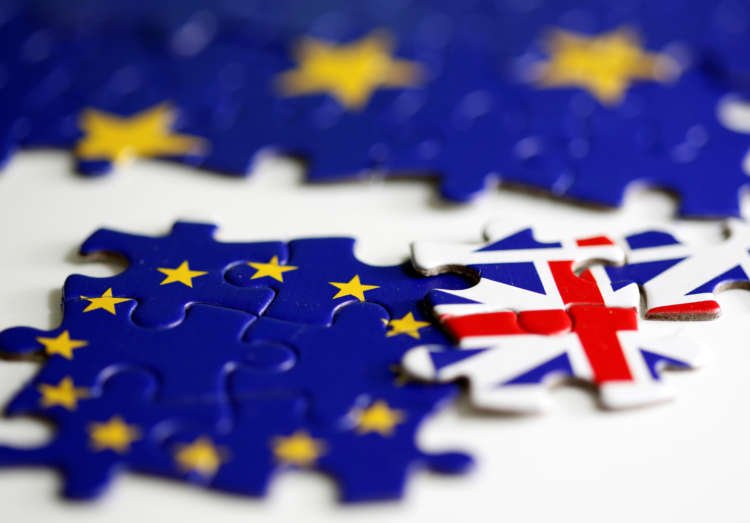Ireland calls for calm as EU rebuffs British Brexit demands
Published by linker 5
Posted on February 11, 2021
3 min readLast updated: January 21, 2026

Published by linker 5
Posted on February 11, 2021
3 min readLast updated: January 21, 2026

By Conor Humphries and Jan Strupczewski
DUBLIN/BRUSSELS (Reuters) – Ireland on Thursday called on the European Union and Britain to dial down the rhetoric in a blame game over post-Brexit trade frictions after Brussels rejected most of London’s demands for easier trade with Northern Ireland.
Britain has sought to extract concessions from the EU since the European Commission sought briefly last month to prevent coronavirus vaccines from moving across the open border between EU member Ireland and the British province of Northern Ireland.
The Commission cited a shortfall of vaccines promised for the EU, but reversed its move after an uproar, with Northern Ireland First Minister Arlene Foster calling it an “incredible act of hostility.”
At issue is the so-called Northern Ireland protocol that seeks to preserve the open Irish border – a crucial component of a 1998 peace agreement that largely ended conflict in Northern Ireland – while at the same time maintaining the integrity of the EU’s single market.
The protocol was part of a deal reached when the United and fully exited the bloc’s economic orbit on Dec. 31, having left the EU in January last year.
Irish Prime Minister Micheal Martin, speaking ahead of a meeting between British Cabinet Minister Michael Gove and European Commission Vice President Maros Sefcovic later on Thursday, said some European states in particular “need to cool it”.
“I think we need to dial down the rhetoric on both sides here,” Martin told RTE radio. “We just need to calm it, because ultimately we want the United Kingdom aligning well with the European Union.”
Gove, Prime Minister Boris Johnson’s top minister on Brexit affairs, sent a letter to Sefcovic last week demanding some changes to the Northern Ireland protocol, including an extension to grace periods for the transport of some chilled food from Britain to the province.
The letter said if no way forward was found, the UK would “consider using all instruments at its disposal.”
But in a response overnight, Sefcovic rejected calls for more time, until Jan. 1, 2023, for British supermarkets and their suppliers to adjust to the new customs border on the Irish Sea for goods shipped to the province, including chilled meat, parcels and medicines.
The letter said the European Union was examining more flexibility on steel but that on the issues of pet travel between Great Britain and Northern Ireland and of movements of seed potatoes and other plants, any flexibility would entail the United Kingdom committing to align with EU rules.
Gove said on Thursday that he would seek agreement in the meeting to make the processes for British-Northern Irish trade “as light touch as possible”.
The EU’s chief Brexit negotiator, Michel Barnier, said the problem was Britain’s exit from the bloc, not the protocol agreed between the two sides over their divorce.
“The difficulties on the island of Ireland are caused by Brexit, not by the protocol,” he told a European Business Summit event. “The protocol is the solution.
The European Commission forecast on Thursday that Britain’s exit, which the country voted for in a 2016 referendum, will cost the EU around 0.5% of economic growth over the next 24 months, but will be more than four times more painful for the UK due to significant non-tariff barriers.
(Additional reporting by Padraic Halpin in Dublin and William James in London, writing by Conor Humphries; Editing by Frances Kerry)
Explore more articles in the Business category











